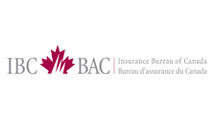Stays of Canadian Court Proceedings in Favour of International Commercial Arbitration: Recent Trends
When litigation arises in relation to a dispute that is subject to an arbitration agreement, the agreement’s efficacy requires that the litigation be stayed and the matter referred to arbitration. This article examines the occasions since 2016 in which Canadian courts have been asked to stay their proceedings in favour of international commercial arbitrations. On each of those occasions, the stay sought by the defendant was granted – affirming the robustly pro-arbitral stance of Canadian law. Despite this uniformity of outcome, the underlying reasons for judgment in these cases identify several themes with which courts continue to struggle.
Introduction
Since January 2016, Canadian courts have been asked on 17 occasions to stay their process in favour of parallel international commercial arbitrations: 6 in Ontario,[1] 4 in British Columbia,[2] 3 in Alberta,[3] 2 in Québec,[4] and 1 in each of the Northwest Territories[5] and Saskatchewan.[6] On each of these occasions, the litigation proceedings ultimately were stayed in favour of the arbitral process, in compliance with Article 8(1) of the UNCITRAL Model Law:
A court before which an action is brought in a matter which is the subject of an arbitration agreement shall, if a party so requests not later than when submitting his first statement on the substance of the dispute, refer the parties to arbitration unless it finds that the agreement is null and void, inoperative or incapable of being performed.
On its face, this unbroken chain of stays is good news for arbitration in Canada. It affirms that Canadian courts are heeding the Supreme Court of Canada’s modern pro-arbitration jurisprudence[7] and giving robust support to the competence-competence principle. Despite the uniform outcomes in these cases, though, the underlying reasons for judgment disclose a handful of themes with which Canadian courts continue to struggle.
Theme 1: International or Domestic Statute?
One thread in the cases relates to whether the relevant international or domestic arbitration statute governs. Canadian domestic commercial arbitration statutes typically provide that they apply unless excluded or unless the international statute applies. UNCITRAL Model Law Article 1(3) identifies when an arbitration is international, and courts usually have no difficulty determining which statute governs (see, for example, Greer and Toyota Tsusho). Depending on the parties’ corporate structure, though, complex questions of fact can arise in determining whether the test of internationality is met (see, for example, Alberta Motor Association Insurance Co.).
The test for a stay is often the same under the domestic and international statutes, so in some jurisdictions determining which statute applies may not be practically consequential (see Haas, Heller, and Pixhug Media). In other jurisdictions, though, more may turn on the answer. In Alberta, for example, under the domestic statute the court retains a discretion to refuse to stay a proceeding if the matter in dispute is appropriate for summary judgment – whereas under the international statute the court has no discretion and must refer the parties to arbitration (see Alberta Motor Association Insurance Co.). In two instances a stay was granted under the relevant domestic statute even though the dispute was apparently international (see Haas and Novatrax). In neither case did the court refer to the international statute or the UNCITRAL Model Law. Novatrax in fact treated the arbitration agreement as a forum selection clause that could be disregarded if “strong cause” were shown for doing so.
The requirement that an arbitration agreement be “commercial” will be construed liberally (Heller), and arbitration need not be the parties’ sole method of dispute resolution before a stay can be ordered (Trade Finance Solutions).
The superior courts’ general and inherent jurisdiction confers broad discretion to stay court proceedings, even where the requirements of Article 8(1) are not met such that a mandatory stay is unavailable.[8] It may be argued, for example, that litigation between non-arbitrating parties will be practically and materially affected by the outcome of related arbitral proceedings. The party seeking the stay must satisfy the court that a stay is warranted. As a general rule, a plaintiff is entitled to bring a claim and to proceed to trial for resolution and even a temporary stay is the exception.
Theme 2: Arbitrability
A second theme emerging in the cases is whether a litigated dispute falls within the scope of the arbitration agreement. The competence-competence principle is hard at work in these cases. Challenges to an arbitrator’s jurisdiction should normally be resolved first by the arbitrator (see Dell and Seidel), and a court should depart from that general principle only if the challenge involves a pure question of law or a question of mixed fact and law that requires only superficial consideration of the documentary evidence.
In keeping with these principles, courts have agreed to stay attempts to litigate fraud claims (Haas, Pixhug Media), claims for fraudulent or negligent misrepresentation (Greer), and even claims for defamation by tweet (Bieber) so long as an arguable or prima facie case could be made that the dispute arose in connection with an arbitration agreement (Advantage Engineering, Hosting Metro, and Heller). The “arguable case” standard applies to all of the statutory prerequisites to a stay, including whether an arbitration agreement exists (Sum Trade).
Theme 3: Exceptions to the Mandatory Stay
A third theme is the difficulty of proving that an arbitration agreement is “null and void, inoperative, or incapable of being performed” within the meaning of Article 8(1) of the UNCITRAL Model Law. There is no residual discretion outside the parameters of Article 8(1) to decline to stay proceedings, and the risk of a multiplicity of proceedings is not a relevant factor (Greer). Courts are very slow to find that the exceptions to the mandatory stay apply, and none of the following attempts to do so succeeded:
- The fact that the main parent contract is alleged to be breached or void ab initio does not render the arbitration agreement “null and void” since it is separable (Greer and Advantage Engineering);
- An arbitration agreement designed for bilateral disputes does not become “inoperative” when a multi-party dispute arises (Haas);
- An arbitration agreement does not become “incapable of being performed” due to a key witness’ inability to travel to the seat of arbitration (Advantage Engineering);
- An arbitration agreement is not “inoperative or incapable of being performed” where seemingly contradictory dispute resolution mechanisms can be interpreted so as to avoid inconsistency (Toyota Tsusho); and
- The fact that an arbitral award might be unenforceable against non-signatories does not render an arbitration agreement “null and void, inoperative, or incapable of being performed” (Hosting Metro).
Theme 4: Whether Stay Should Extend to Litigated Claims Against Non-Arbitrating Parties
A final theme traversed in these cases is whether the litigation stay should extend to the claims brought against non-arbitrating parties. The courts have a discretion to grant a stay of such breadth,[9] and may do so at the request of any party to the legal proceedings (Pixhug Media). On the one hand, a stay may be refused if the delay would cause prejudice to the non-arbitrating parties (Toyota Tsusho). On the other hand, a broad stay may be appropriate where the litigation claims are factually intertwined with the arbitrable claims and where all of the claims hinge on the disposition of a common threshold issue (Novatrax).
Conclusion
The cases within the temporal scope of this paper demonstrate the strong willingness of Canadian courts to uphold the sanctity of arbitration agreements. The competence-competence principle is in robust good health in Canada. Nevertheless, the cases include a number of outlier sets of reasons. Those reasons may suggest that Canada’s non-specialist courts are not yet receiving all of the assistance they should in international commercial arbitration cases. They also underscore the importance of proper drafting, since many of the vexing issues in those outlier reasons were the product of ambiguously or defectively worded arbitration agreements.
[1] Advantage Engineering Inc. v. Polaris Industries Inc., 2016 ONSC 2706 (25 Apr 2016); Haas v. Gunasekaram, 2016 ONCA 744 (13 Oct 2016); Novatrax International Inc. v. Hägele Landtechnik GmbH, 2016 ONCA 771 (20 Oct 2016); Trade Finance Solutions Inc. v. Equinox Global Ltd., 2016 ONSC 7988 (30 Dec 2016), rev’d, 2018 ONCA 12 (11 January 2018); Best Source Inc. v. International Industries Corp., 2017 ONCA 411 (23 May 2017); and Heller v. Uber Technologies Inc., 2018 ONSC 718 (30 January 2018).
[2] Hosting Metro Inc. v. Poornam Info Vision Pvt Ltd., 2016 BCSC 2371 (02 Dec 2016); Northwestpharmacycom Inc. v. Yates, 2017 BCSC 1572 (07 Sep 2017); Pixhug Media Inc. v. Steeves, 2017 BCSC 2171 (28 Nov 2017); and Sum Trade Corp. v. Agricom International Inc., 2017 BCSC 2213 (01 Dec 2017).
[3] Alberta Motor Association Insurance Co. v. Aspen Insurance UK Ltd., 2018 ABQB 207 (19 Mar 2018); Zomongo Inc. v. Fisher Enterprises LLC, 2016 ABPC 19 (05 Jan 2016); and Toyota Tsusho Wheatland Inc. v. Encana Corp., 2016 ABQB 209 (12 Apr 2016).
[4] 9302-7654 Québec Inc. v. Bieber, 2017 QCCS 1100 (24 March 2017); and 7847866 Canada Inc. v. Free Electric Appliances Inc. of Zhuhai, 2017 QCCS 1723 (01 May 2017).
[5] Miller Sales and Engineering Inc. v. Metso Minerals Industries Inc., 2017 NWTCA 3 (12 May 2017).
[6] Greer v. Babey, 2016 SKCA 45 (01 Apr 2016).
[7] See, for example, Dell Computer Corp. v. Union des consommateurs, [2007] 2 S.C.R. 801 (Qué.), and Seidel v. TELUS Communications Inc., [2011] 2 S.C.R. 531 (B.C.).
[8] Nordural Helguvik ehf v. Alterra Power Corp., 2016 BCSC 564 at paras. 7, 21-22.
[9] Kaverit Steel and Crane Ltd. v. Cone Corporation, 1992 ABCA 7.
Angus M. Gunn is a partner with Eyford Partners LLP in Vancouver. His advocacy practice emphasizes arbitration proceedings (and related litigation), appellate advocacy, public and administrative law matters, and corporate commercial disputes.




















